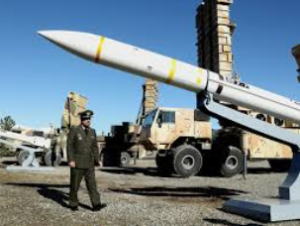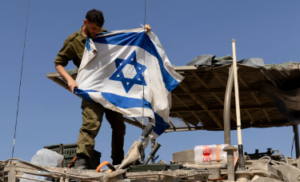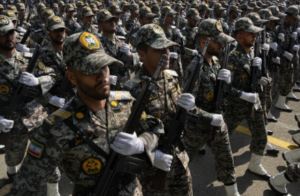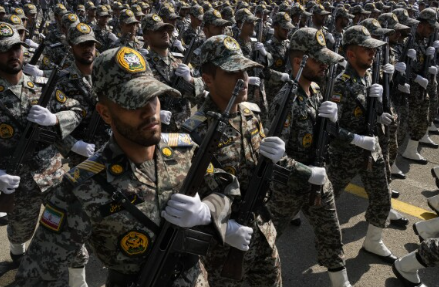Introduction
Former Prime Minister Ehud Barak warns of escalating tensions in the Middle East as Israel considers retaliatory strikes following Iran’s missile assaul.In a significant development in the ongoing conflict between Israel and Iran, former Israeli Prime Minister Ehud Barak has predicted that Israel is poised to launch a large-scale airstrike against Iran’s oil industry, alongside potential symbolic attacks on military sites related to Iran’s nuclear program. This comes in response to Iran’s recent barrage of over 180 ballistic missiles, which targeted densely populated areas and Israeli military bases.
Barak stated, “Israel has a compelling need, even an imperative, to respond. No sovereign nation on Earth could fail to react to such aggression.” His remarks underline the urgent and volatile nature of the current situation, which could lead to broader regional conflict.
Drawing parallels to recent Israeli strikes against Houthi-controlled facilities in Yemen, Barak suggested that a robust military response might not only be a one-time event but could involve multiple strikes. “It might be a massive attack, and it could be repeated more than once,” he asserted.
While President Joe Biden has acknowledged discussions around possible Israeli military actions, he refrained from detailing the U.S. stance on supporting such strikes. Barak, who previously advocated for military action against Iran’s nuclear capabilities, now cautions that a direct attack on these sites may be futile due to Iran’s advanced nuclear program.

“Iran is a de facto threshold country,” Barak explained, noting that their enriched uranium stockpile has reached 30 times the limit set by the 2015 nuclear agreement. “The ability to delay their nuclear ambitions significantly no longer exists,” he stated, emphasizing that the timeline for Iran to develop nuclear weapons has drastically shortened.
Despite his reservations about targeting nuclear facilities, Barak acknowledges internal pressures within the Israeli government to take action against Iran’s nuclear ambitions, even if the impact is largely symbolic. “You can cause certain damage, but some may view it as worth the risk compared to the alternative of doing nothing,” he said.
Barak also criticized current Israeli Prime Minister Benjamin Netanyahu for failing to pursue diplomatic avenues that could have mitigated the conflict, asserting that opportunities for a peaceful resolution have been overlooked.
As tensions continue to escalate, the implications for regional stability and global politics are profound. The conflict, which has already devastated countless lives, is now at a critical juncture that could reshape the geopolitical landscape.
For ongoing updates and in-depth analysis of this developing story, stay tuned to our live coverage.
Why Support Independent Journalism?
As the world grapples with complex crises like this one, quality, investigative journalism remains essential. By supporting our independent reporting, you help ensure that accurate information is available to everyone. Join us in promoting transparency and accountability in these turbulent times. Thank you for your support
In a significant escalation of tensions, former Israeli Prime Minister Ehud Barak has suggested that Israel is likely to undertake a large-scale military response to Iran’s recent missile assault, which involved over 180 ballistic missiles targeted at Israeli territories.
Key Points
- Iran’s Recent Missile Assault:
- On October 1, 2024, Iran launched a major missile attack against Israel, with a high volume of missiles targeting populated areas and military installations.
- Israel’s defense systems successfully intercepted most of these missiles, but some caused damage and heightened security concerns.
- Ehud Barak’s Predictions:
- Barak predicts that Israel will likely focus on retaliatory strikes against Iran’s oil infrastructure, drawing parallels to recent Israeli airstrikes on Houthi-controlled facilities in Yemen.
- He emphasizes that Israel may conduct multiple strikes, reinforcing the seriousness of the situation.
- U.S. Involvement and International Reactions:
- President Joe Biden acknowledged discussions regarding Israel’s military options but did not clarify the U.S.’s potential support for such actions.
- Previous administrations, including those of Obama and Bush, expressed hesitance towards military strikes on Iran’s nuclear sites, reflecting ongoing concerns about regional stability.
- The Status of Iran’s Nuclear Program:
- Under the 2015 nuclear agreement, Iran had restrictions on uranium enrichment. However, following the U.S. withdrawal in 2018, Iran has significantly advanced its program.
- As of now, Iran’s enriched uranium stockpile is 30 times the agreed limit, and its enrichment levels have reached up to 60%, raising fears about a potential nuclear breakout.
- Barak’s Shift in Perspective:
- Barak, once a proponent of military action against Iran’s nuclear capabilities, now acknowledges that strikes may no longer effectively delay Iran’s nuclear ambitions due to the program’s advancements.
- He mentions that internal pressures within the Israeli government may lead to symbolic strikes against nuclear sites despite their limited impact.
- Critique of Netanyahu’s Leadership:
- Barak critiques Netanyahu’s approach, suggesting missed diplomatic opportunities that could have prevented escalation.
- He points out that the lack of a comprehensive plan for a post-conflict scenario has exacerbated the crisis, particularly regarding Palestinian governance.
- Potential Implications for Regional Stability:
- The situation remains precarious, with the potential for broader conflict involving regional players such as Hezbollah and Hamas, which are backed by Iran.
- As the conflict intensifies, the humanitarian impact in Gaza and Israel continues to worsen, drawing international concern.
- Historical Context:
- Tensions between Israel and Iran have escalated since the 1979 Iranian Revolution, which established a theocratic regime opposed to Israel.
- The 2015 Joint Comprehensive Plan of Action (JCPOA) aimed to curtail Iran’s nuclear ambitions but has been undermined by subsequent U.S. policy changes.
- Recent Developments:
- Ongoing military skirmishes and retaliatory strikes have become more frequent, creating a cycle of violence that complicates diplomatic efforts.

- Public Sentiment:
- Both Israeli and Iranian populations are deeply affected by the conflict, with widespread fears of escalation leading to broader war.
- Public opinion in Israel may increasingly support military action in response to perceived threats from Iran.
- Global Reactions:
- International bodies, including the United Nations, have called for restraint and dialogue to avoid further escalation.
- The geopolitical ramifications of a conflict involving Iran could affect global oil markets and international alliances.
Conclusion
The ongoing conflict between Israel and Iran represents a critical flashpoint in Middle Eastern geopolitics, with potential repercussions that extend far beyond the region. As military responses are contemplated, the international community watches closely, hoping for a resolution that avoids further loss of life and regional instability.

